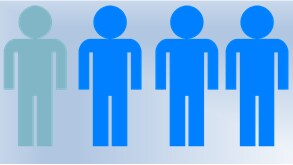At a glance
- Everyone deserves a fair and just opportunity to be as healthy as possible. This is called health equity.
- Achieving health equity means addressing systemwide problems, unfair practices, and unjust conditions that have a negative impact on the health of specific groups.

Overview
In order to achieve health equity, we work to reduce health disparities. Health disparities are differences in health outcomes that are closely linked with social, economic, and environmental factors that affect people with behavioral health conditions. To improve health equity, we must consider the role of commercial tobacco.A
Continue reading
Commercial tobacco gets in the way of achieving health equity.
Unfair and unjust practices related to commercial tobacco harm people.
People who smoke often use other substances or have other substance use disorders.
There are barriers to finding and using proven treatments that help people quit smoking.
Content Source:
National Center for Chronic Disease Prevention and Health Promotion; Office on Smoking and Health
- "Commercial tobacco" means harmful products that are made and sold by tobacco companies. It does not include "traditional tobacco" used by Indigenous groups for religious or ceremonial purposes.




